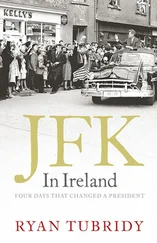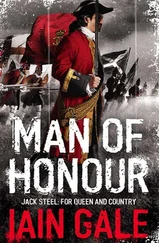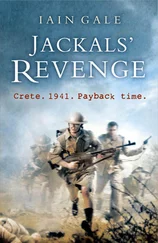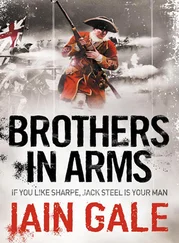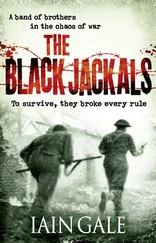Howitzer shells were falling in the villages, in Ligny in particular, setting houses on fire. In the few brief lulls in the firing, Ziethen could hear the frenzied screams of the wounded trapped inside. He imagined them – boys mostly, dying so horribly in their first, their only battle.
Another rider delivered a hand-written note from General Henckel. There was hand-to-hand fighting in the streets of Ligny. Every lane, even the gardens, was choked with the dead. And all the time it seemed that, inch by inch, the French were gaining ground. In the fields behind him, the greater part of II Corps stood in its positions on the forward slope, pinned down by the French artillery. Unable to reinforce the line.
For an instant the smoke grew less dense and, noticing a gap, Ziethen rode 100 yards forward down the slope and put a telescope to his eye. Bizarrely, he was able see quite clearly. Down in Ligny a brigade of French infantry was moving in to the attack. He saw them break into a charge, some of them peeling away down a hollow track across which Jagow’s men had dropped felled trees, farm machinery, furniture, pews from the church. Faced by this tangle, the French came to a halt. For a moment. Then the press from behind, the sheer weight of numbers, began to push the front ranks forward, crushing them against the makeshift barricades, moving them by force of human bodies. Trampling over their own men, they reached the church. Without warning, as Ziethen continued to stare, from behind the walls of the churchyard, from the cover of tombstones and from windows, Jagow’s infantry opened up. Perhaps twenty score of French fell at once. He took the telescope away. Wiped the dusty lens, looked again. Saw yet another French column rush into the town and towards the church. This time they were met with bayonets.
Ziethen gazed in unconcealed horror at the ferocity of the fighting. Men were firing into each other at close range. Blowing off pieces of their adversaries. Leaving smouldering black powder marks around the wounds. He saw French and Prussians alike fall by the score. Saw, quite clearly, a young Prussian grenadier use the butt of his musket to beat out the brains of a voltigeur before he too was cut down by the slashing sword of a French officer. Who in turn was shot point-blank through the mouth. A sergeant of chasseurs was beating the bloody head of an already dead Jäger rifleman against the wall of the burning church. Never, in twenty years of soldiering, could Ziethen remember witnessing such basic, primeval violence.
For a moment the French appeared to falter. And then another officer, a full colonel, rode up and rallied them and, although he could hear nothing above the din of battle, Ziethen could see the blue-coated infantry shouting, mouthing oaths to the glory of their Emperor, before they disappeared into the madness of the mêlée.
Drained, he dropped the glass from his eye. Stared in silence. If they continued to fight like this, surely the French would win against any odds. Gneisenau must commit the entire reserve. Bring them down now, never mind the cannon fire. Ziethen raised his telescope again. Swung it round to the left of Ligny and across the stream. A glint of brass caught his eye. Cannon barrel.
He called to von Reiche. ‘Do you see that?’
There was no question about it. Artillery. He counted more than ten batteries. Heavy guns manned by men in peaked bearskins, being moved up towards Ligny. Bonaparte intended to reduce the village to rubble. And after that he would be free to swing those twelve-pounders around and enfilade either wing of the Prussian army.
All they could hope for now, it seemed, was to hold out until nightfall brought an end to the fighting. Then perhaps the survivors might join with the English tomorrow.
In the sky the storm clouds were gathering, steadily growing heavier. Where in God’s name, he wondered, was Wellington? And then, remembering his promise to Jagow, Ziethen set off, back up the hill, in search of the reinforcements.
NINE
Quatre-Bras, 3.45 p.m. Ney
He sat on Mortier’s old horse, in the centre of the line, by the wood behind the little whitewashed farm, and stared at the pall of white smoke rising from the crossroads. Ney knew that he must work to calm himself. Wasn’t Aglaé always telling him so? He must control his temper. But, he reasoned, General Bachelu had been asking for it. Of course it was true that the high crops might conceal more of the enemy. There were always hidden dangers in battle. So why, he had asked him, had Bachelu ever become a soldier? Was he afraid? Ney had to admit it was a bit severe. More than that, it was unfair. Unjust. Ney bit his lip. Knew that the only reason he had treated the general so badly had been his own frustration. His orders from the Emperor had only arrived late in the morning, delivered in person by Charles de Flahaut. It was good to see the handsome young general. A reminder of happier times. Flahaut was the lover of Hortense de Beauharnais, the Emperor’s stepdaughter, and had been Aglaé’s favourite singing partner in so many concerts at their Paris home. Ney had always been a little jealous.
It was a short message. Ney was to engage the English at once. Take the crossroads. But it had not taken him long to realize that, if he were to safeguard his flank, Bossu wood must also be secured. A frontal assault on the wood? Reille advised caution. Instead, Ney had decided to attack the Allied left. To make for the Namur/Nivelles road and to take it at the hamlet of Paradis. That done, he calculated, the Dutch would be forced to abandon the big wood to save their own flank. There would not be, as the Emperor had demanded, some daring coup de main . The only way to beat Wellington at this game, Ney knew, was to muster his men and simply press the Allies into the ground by weight of numbers. A mass attack in the old style. Of course the French would take casualties. But d’Erlon’s corps would be here soon to exploit the gap, and after that the way to Brussels would lie open. It was a brilliant plan. Worthy of the Emperor.
It had, however, taken the remainder of the morning to manoeuvre into position. Twenty thousand men had moved from column of route to column of division and finally into column of attack. Twenty-four battalions, each of them with a frontage of sixty men and nine ranks deep. At length, it was not until 2 o’clock, far later than Ney had originally intended, that he had sent them in.
Bachelu needn’t have worried. His division had simply walked through the handful of Dutch skirmishers. A thirty-gun cannonade had knocked out one Dutch battery in spectacular fashion, blowing up an ammunition caisson and sending men, parts of men and horses and shards of wood flying thirty feet into the air. True, Foy’s division over on the left had been harried by the remaining Dutch guns, but another barrage soon silenced them. Then Foy’s men had pushed into the edge of the wood, forcing back the Nassauers. Within an hour Ney had advanced 1,000 yards. On cue, Jerome’s division had arrived.
Looking through a field-glass at the crossroads, Ney had also noted the arrival among the Dutch of fresh, green-coated troops. More Nassauers. Running, curiously, into position. It was of no consequence. What was important was to take the crossroads before Wellington was able to deploy his English.
The central farm, Gemioncourt, was held in force. Ney moved quickly. Sent in four of Foy’s regiments to the assault, supported by Piré’s lancers. As they moved relentlessly forward, a rider approached the marshal from the direction of Paradis. A dust-covered captain of infantry.
‘Captain Letort, sire, of the 3rd Line. From Colonel Baron Vautrin. I have urgent news. The English, sire. They’re on the road. At Paradis and at the crossroads.’
Читать дальше



